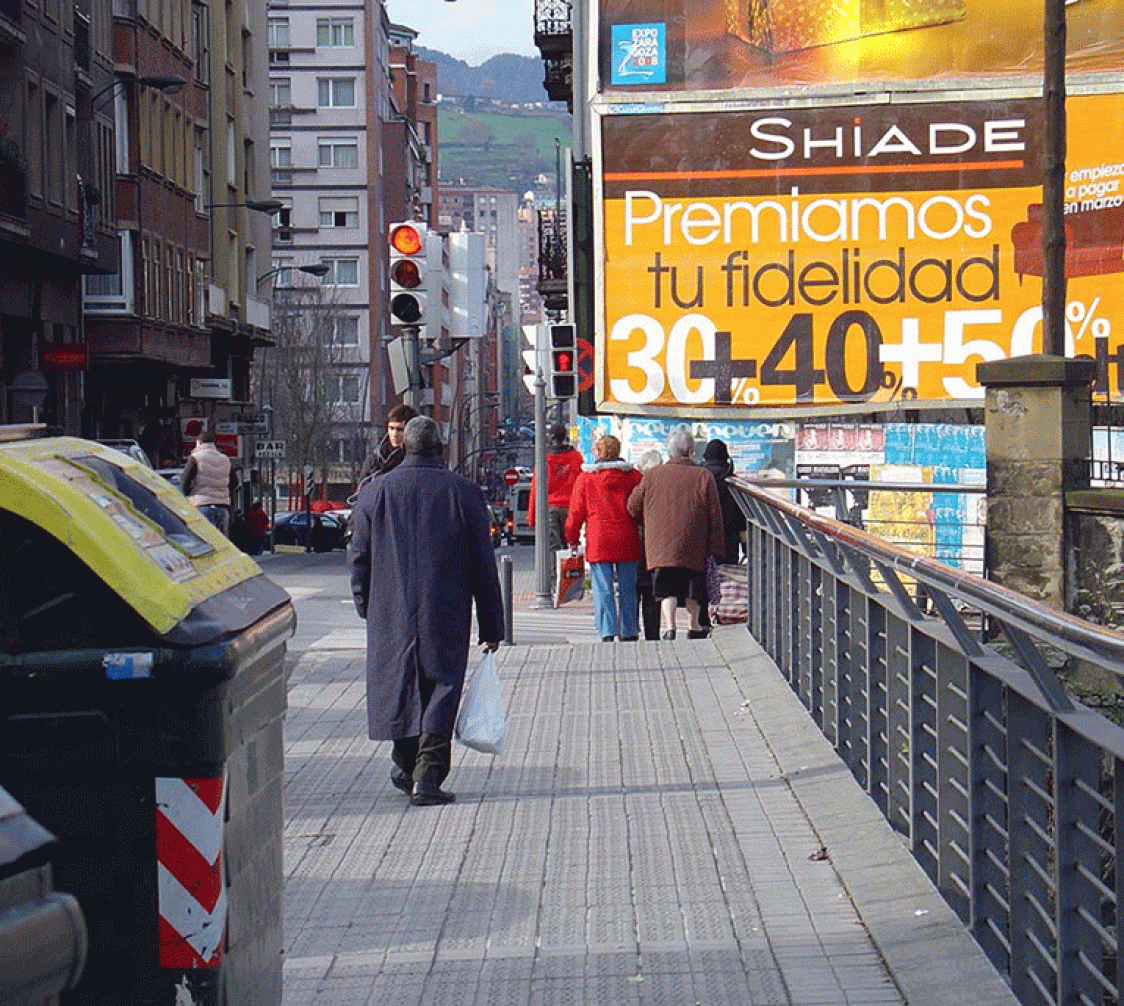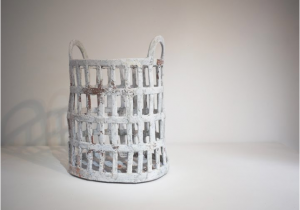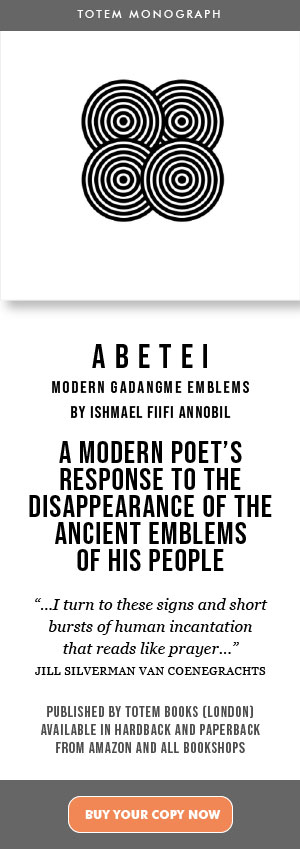Kathy Owen
FIGHTING BLACK IN SPAIN
They had been coming in droves. Boat loads of illegal immigrants from Senegal, The Gambia, Guinea and other West African countries, seeking refuge on any one of the seven-island archipelago off the coast of Spain. Reports from 2006 have tallied the influx of refugees at over 30,000, and fears of this number being repeated during calmer seas and warmer weather had the nationals here on tenterhooks.
Though this problem is not unique to the Spanish isles, illegal immigration here has been made into a wider issue, far surpassing those relating to rights of abode. The problem (though spoken about with more appropriate labels and better PC terms) has now become a blanket race issue, and is felt perhaps even more severely on the mainland by any person of African descent, with or without legal status. The three boatloads of 800, presumed, West Africans that arrived in the week of May 31 exacerbated this wave of resentment.
I have been living in the Basque region now for over a year. Seventeen months to this date since I decided to make Spain my home – more out of ease and necessity than desire. My husband, a Spanish national, thought it best for us to set up home in his country, as my moving here would be less problematic than his emigration to mine. Nineteen months on and I’ve yet to see the truth in that decision. When I first came here my eyes were wide open and expectant, and I was buoyed by the excitement of embracing my new path as a wife.I was living outside of London when I met my husband and was still buzzing from the great joys of living in and around that unmatched metropolis (London, that is). We had both waited for a long time before choosing marriage, and so thought that the common obstacles associated with this commitment would’ve been the least on our list of things to overcome. Never did we (perhaps naively) expect that even in this age those negatives attending inter-racial coupling would be placed at the very top.
I was not conscious I was ‘crossing the colour line’, so to speak. We’d clicked so soundly that I didn’t even notice his race until a girlfriend asked ‘so he’s a white guy or what?’ I found the question off-putting then, as I do now, probably because of my own life long effort to identify people on the basis of their character rather than their skin colour. Coming from a culture where shades determine your acceptance and White is considered as privileged, I’d always made it a point to try not to focus on which end of the colour scale anyone sat. I had low tolerance for racism from any side. Hence, a man was worth dating if he was worthy of my company, and a judgement call was never made based on his ethnicity; for me this man’s manner was like none I had ever met before; neither packaged in yellow, cream, or black.
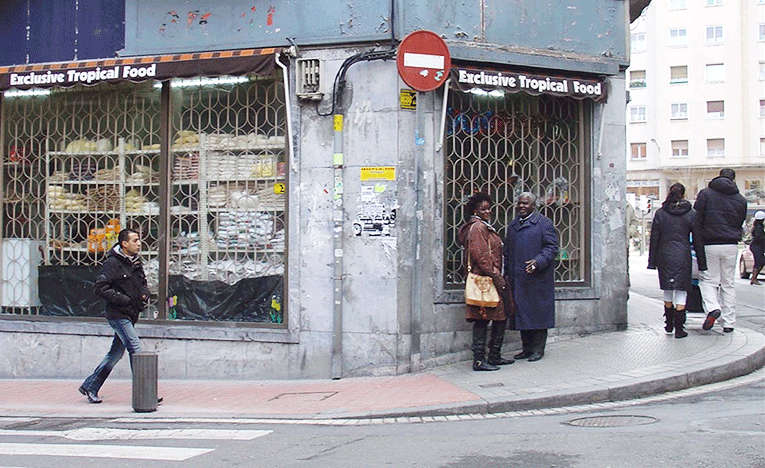
At first Spain seemed no different from any other European country I’d been to. I commanded the language well. I had spent enough time living and studying on my own in Cataluña not to be scared of leaving the safety of my ‘English speaking’ grounds. I was by no means green to cultural differences, or, for that matter, racism. On occasion whilst living in New Jersey as a teen and then later setting up home in numerous other places outside the Caribbean country of my birth, I lived the second-class life. Suffering segregation therefore wasn’t unfamiliar, but suffering its anxiety everyday certainly was.
The first time I realized that it wasn’t going to be the way I’d hoped was about five months into our first year. My husband’s friend had lost his sister-in-law and I thought it befitting to buy the bereaved some flowers. Walking into the florist shadowed by doubts as to what exactly to buy, I thought it prudent to seek advice. Floral etiquette was not my forte but I did know enough about flowers (fresh from my wedding planning) to be able to ask the right questions. Waiting for the other clients to be served – who came in long after me – didn’t really feel like a problem, as I was still trying desperately to remember the rules of flower giving, and to translate flower names into Spanish.
Ten minutes passed and I was just about the only person left who hadn’t been attended to. As I was about to draw attention to that fact, my eyes were drawn to the most amazing stargazer lilies. Whether they were appropriate for mourning or not was not an issue – they were the ones I wanted. Presently, a noticeably young attendant hastened up to that section, feigning to have just noticed me for the first time, and commented in the crispest French “…those, my dear, are quite expensive”. Now, if being 37 entitled one to being addressed as ‘ma’am’ by one’s juniors then I supposed ‘dear’ must be the opposite. But I was even more intrigued by the fact that I did not know that stargazers were that costly.
I ignored her and continued on my way without missing a step. But then I saw her point – just next to them was the most beautiful arrangement of highbred Peruvian lilies complemented by a single stalk of lavender Iris. Either way, I hadn’t yet sought her counsel as to the price of either, so, costly or not, I was offended. Having made her conscious of her presumptuous faux pas, I struggled for a moment with how to proceed further. I chose to shatter that assumption she had of me being a Francophone, and though I had taken French at university, I chose to dress her down in Spanish, making sure to refer to the flowers by both their botanical and common names, and establishing the fact that I knew their general cost. She was cornered. She tried unsuccessfully to veil her inner turmoil by fumbling through an account of how well they’d sold that month.
Not fully satisfied I then turned my attention to the woman in charge, who had obviously overheard our little exchange. Her only contribution was to feign surprise at the misguided young girl’s ungainliness and ask how many flowers I wanted to buy. Perfect opportunity to execute my coup de grace – saying glibly that I was simply unable to make up my mind, I called my husband to ask – in English – just how many he thought we would need, bought two bouquets with my Gold card, threw them a parting French salutation, and left with my head held high.
Though I felt momentarily appeased after leaving the shop, my high was soon followed by a gut wrenching low. I suddenly became enraged for having to pull the ‘grade-card’ just to prove I was equal and having to shamefully fluff my feathers. It was a demeaning act of over compensation and I felt like the guy in the branded suit with the bright sports car, music-a-blaring and rings-a-flashing. Never before had I been pushed to such measures. But I soon realized it was something I would need to do more and more often, thereafter, as my value and abilities were continually called into question.
The encounters followed in close succession and I somehow ended up feeling ever more ashamed at the end of them. The slow head to toe stares and double takes on the street, the occasional inappropriate propositions from men driving by at stop lights, and the never ending tennis match on issues from crime relative to colour and culture, to success and possibility as things supported by genetic ability. My days grew heavy and long. Conversations that normally would have been everyday pleasantries or accounts of experiences no longer felt genuine, and each new meeting felt like a parade. I then realized that I was losing the war, even though at the end of each fight I scored more points. For I was the one who went home feeling worse. I was the one who woke up to a repeat of the awful same.
Should I have the need to tell them how much I know, how far I’ve travelled? Should I be satisfied with having to boast? Was I supposed to always be on show, ready to compete in order to be compared as an equal? Or should I just be comfortable being in ‘great Spain’ cloaked by their looks of suspicion and disdain? I started to question not only my reasons for being here but also for having to tolerate such a fight for love. The disagreements I had with my husband sadly were not simply over toothpaste caps and toilet seats, but instead, ‘so called friends and their intentions’.
My concerns were chips and his explanations excuses. We cried a lot and laughed less and nothing felt right. But through it all it never seemed as if we were fighting each other. The one thing that kept us going was our love, and the respect we had for the other’s views and opinions. But more importantly our burning desire to comfort and sooth each individual’s pain eased the toils of the days. One decision was made; we were on the same side. He took the stance that any rejection of me was an indictment against him and would not be tolerated.
Though I continued to question and often felt lost I found peace in the encouragement of my friends and family miles away, and the few he had here who lent their support. I searched diligently for the new way and pondered heavily as to what I was doing wrong. Then, like release, it came. I had indeed been going about things incorrectly. I realized that the aim in situations like these is not to try and change anyone’s ideas of who you are, but instead you should go about your way living as you feel you have the right to, leaving those whom are clouded by prejudices and stereotypes to their own nonsensical arguments, conscience, and puzzle. An attitude not easily achieved by any means but one that is (on occasion) maintainable. And though the answers took a long time to come the questions were finally replaced by an overwhelming sense of tolerance and calm.
I no longer went to dinner parties just because I had been invited (so that they could scrutinize the Black souvenir the Spaniard picked up) – politeness wasn’t allowed to override my comfort. Those who made the trip outside of their own world to see the truth in mine were the ones I engaged in discourse, and very few were given the chance to stir my ire. My in-law’s neighbour had no other opportunity to berate me for all the ills within my race nor did I allow myself to dislike hers for their abominations.
Now, I try not to go out to battle or get ruffled for every sweeping generalization and reference made to “lazy Blacks, thieving North Africans, rogue Russians and dirty South Americans”, as someone said at one ill-fated lunch. For I have come to understand that these comments are born out of ignorance; a few negative encounters used to judge the many, and no amount of defence will change these impressions. All they see is the guy selling drugs over in *San Francisco and the girl dressed in knee length high heeled boots doing what she sees as her only way out. So when my sister-in-law retorts that she is “…not to be blamed for what happened 200 years ago” because she “wasn’t there”, I accept that as true – but neither was I. The difference however between us is that I’m still suffering from the effects, and I still have to prove myself worthy of being inside ‘the masa’s house’.
Nobody living today is to be blamed for the atrocities of the 15th century and the four that followed. But we all have to acknowledge how the dominoes fell. Further explanation needn’t be given for the results of centuries of pillage. Africa plundered of its people and goods from as early as 1444 until only 200 years ago is now proving what becomes of her people in the end; eight more African bodies from a boat which capsized on New Year’s Eve washed up on the coast of Barbate last week as more risk their lives to make it to ‘better’ crossing the treacherous Strait.

This gruesome find precedes reports that over 76,000 immigrants face expulsion if the Partido Popular get their way come election March 9. With what is being dubbed the ‘contract of integration’ the party announced plans to force all non-EU immigrants to sign an agreement which promises expulsion if a crime were to be committed. This brings back memories of last year when a plane load of ‘illegals’ held for the designated 40 days, were sent back to some African nation amidst cries of sloppy immigration policies.
Normally, migrants without residence papers or work permits are eventually set free (after their required detention) in the centre of a chosen city, with a bottle of water and a sandwich in hand, if the Spanish authorities cannot identify their country of origin. But since the local elections campaigns were on in earnest, the government had to be seen to be working on the ‘immigration issue’. And to add a dash of marketing, Black immigrants were cleverly positioned in clear view for the cameras at ‘question time’ – to prove that politicians were actually happy we are here. Regardless of all this and the fact that jobs filled by immigrants are those many Spaniards themselves won’t do – the South Americans are the new ‘mamies’, and the Eastern Europeans the ones in construction – the Spaniards' seething resentment is blatantly shown. Very few try to hide it.
I do however recognize and appreciate the many people who are willing to venture over to the side of understanding and embrace difference. I talk with such beautiful souls everyday in my job. Their assurances are a big help in making my more difficult moments seem bearable. There are still some people who want to move past this demoralizing approach to dealing with fellow human beings, and see the person standing across from them at any given moment for how they are instead of what. Great joy comes from the interactions I have with those. At times even, I am made to disregard the stains being left by the others. On occasion there is an attempt to offer reasons – to try to explain. No one likes to feel invaded and most of us (if even just on the subconscious level) are indeed territorial. So I do understand their position somewhat. I would be lying if I denied it.
But history is the unrelenting arbiter in all matters. As recently as the 60’s Spain had its own problems of migration, among other things. Under the Francisco Franco regime, the country succumbed to poverty. Many had to seek their livelihood in South and North America, France, Belgium, Germany and Switzerland. A woman was not allowed to vote or, for that matter, work or purchase property without the consent of her husband. And those rights weren’t recovered until after 1975. Now just 33 years since Franco’s death people have greater social issues to adapt to. In addition to which, at this turn, it is their country that is being flooded by people in desperate need of a better way; other nation’s women who are seeking Spanish rights.
In this regard Spain is still young. In certain regions people are unaccustomed to immigrants. To add to these worries, there is the fact that along with the new influx of residents come a few undesirables. Perhaps I, too, would be scared (if the tables were turned). But the chance for that test will never come and therein lies the rub. A grand exodus towards developing regions is highly unlikely. For as long as the handle is being held by those of stronger and better standing, those who bleed will always be the (weaker) less fortunate. They will always seek the quick fix – the country they think has the gold paved streets. As long as policies remain as they are and countries are allowed to dominate others, countries ignored for the fact that they have no resources to sweeten the pot, people will always risk their lives fleeing home and family, to find a better place. And others will continue to hate them for doing so. Understandably, misunderstandings, injustice, and fear will continue to fuel this resentment and only wide scale introspection and fair country alliances will make any change.
Where my understanding will not extend however is to those who have never read a book on slavery or Europe’s history, those who refuse to see the effects of centuries of oppression, or even acknowledge the bad hand that was dealt. What I will not suffer is the uninformed and the obstinate, the insensitive or the illiterate. For just as I cannot play advocate for every ‘bad man’ of colour neither will I hold school for those who refuse to try to learn. No cheat sheets will be slipped to the unwilling. As I fight to stay afloat I refuse to fight Black.
Many of the privileged here (and in other countries that were prominent in the raping of Africa) who now speak so offhandedly of their inherited wealth have forgotten the part their forefathers played in order to acquire such riches, but are quick to recount the ills of non-Whites. The merchants who traded in human cargo to fatten their pockets and boost their financial position so that generations of their offspring can now be wielding such power – boasting of the latest investment they have made (no doubt assisted by their already powerful bank roll) fail to recognize the difficulties of getting a Black foot in the door. In the face of these my position is decided.
What then is the conclusion? There is perhaps none that’s as concrete as one article could sum up, except that Spain perhaps will have to go through what the Americas struggled with, in its own way and time. The fight will be hard to get an Oprah Winfrey on TV or a Barack Obama at their podia – lack of opportunity for Black progress and lack of exposure to home bred Black success will continue to give rise to silly questions and surprises. Here there are no sightings of a Michael Russell building or a Patrice Motsepe team, no Michael Lee Chin or Michael Jordon, or (seemingly) no need for a Marcus Garvey or a Bob Marley, so for now there will remain this divide. With the visit of Condoleezza Rice to Spain on the 1st of June 2007 many felt at ease to comment on her great strides (regardless of their own political views). What they saw in one of the world’s most influential Black women could not have been ignored. How it will positively affect, if at all, those of colour around, is yet to be seen.
These days my husband tries to placate me with explanations as to why they stare – “…you are classy and beautiful”, he says. Whereas the compliment should appease somehow, it only serves to further disappoint – frustrated that I am not enough to help them to see. I know his reasoning is only his denial and shame for his people and so I empathize with him. His inability to explain the stupidity of some members of his race and their role in our continued oppression leaves him feeling guilty, but indeed guiltless. After all, aren’t we equally embarrassed when people of our race behave in ways that are less than acceptable? Are we not infuriated when expected to stand trial for these same perpetrators each time we enter a room? His is only a defence that he cannot be made to feel like a constant theme in our marriage; a problem that he cannot be expected to solve single-handedly.
We are working together to solve what is now both our worry. I still get my massages to the waning wonder of the receptionist at the spa and continue to shop in our predominantly White neighbourhood. He walks proudly with his wife arm in arm to our uptown address and is slowly getting over being ostracized by those he once regarded as friends. For us, the diminishing invitations no longer sadden and the glare of the neighbours no longer matter. I hold no concrete position as to how I will feel tomorrow or the next and my game plan might even yet change. The jury is still out as to what will become of his extended relationships and whether he’ll ever get over the fact that only his mother was present at the celebration of our vows, is again another uncertainty.
What is however sure is that issues of race and nationality are hot topics at the moment and talking is always good – if accompanied by an equal amount of genuine listening. People may prefer to disguise their prejudice under the umbrella of ‘wrong immigration policies’ or the ‘wrongs of those from outside’, but opposition to foreigners and foreign cultures will still smack of blanket generalizations, hypocrisy and separatism. And a slammed door in the face of a person of colour will always bring questions of racism. What is certain is that things are definitely changing. The census reports, that of the 45 million Spanish residents almost 5 million are (legal) immigrants – to ignore what has to happen would be like an ostrich with its head in the sand.
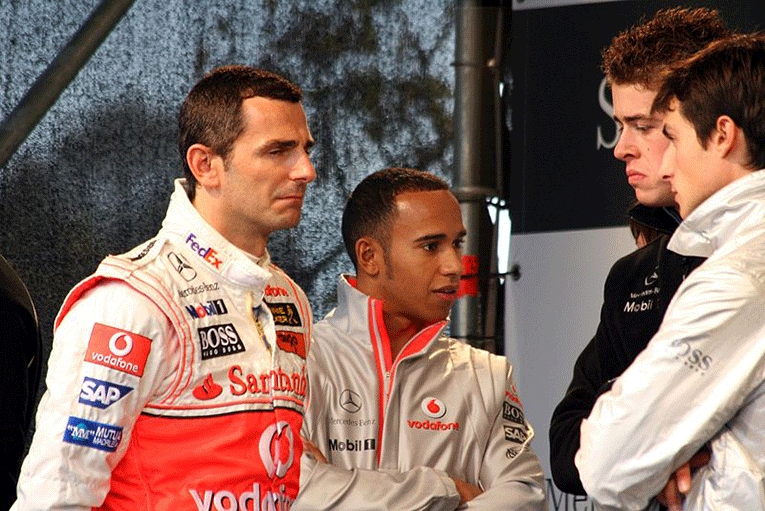
So we try to keep up and on, moving forward with our fight. And we give huge accolades and thanks to those who are putting Blacks in the positive spotlight. For now we depend on sports to somewhat unite – great hurdles are overcome with every Maurice Wignall, Trecia Smith, or Asafa Powell step, with every Ronaldinho goal. With each vicious attack and disparaging remark made towards Lewis Hamilton – the first Black driver in Formulae One’s history – the appreciation for him among the minority community grows twofold and binds them closer together. As prejudice reared its ugly head again in Barcelona, with blackened faces in afro wigs mimicking minstrel performers, shouting racial slurs and grunting monkey sounds at the young race car phenomenon, last week, those opposed to this unintelligible display joined forces. The racists have inadvertently turned non-Hamilton supporters, who may have previously disliked the young chap for his questionable asphalt antics and behind the scenes tactics, into his supporters.
Hamilton, who became the new target for hate, when he begun his lead of the 2007 Grand Prix’s point standing over fellow Spanish team mate Fernando Alonso, has since proven to be an even bigger man off the course; choosing to contest this aggression with his skill rather than with retaliatory words. He’d been likened to a petulant child before, but now it seems the focus has shifted, and people are left to appreciate character over their own primitive presumptions about colour.
Spain today is stirring like no other time in its history and the world is being made to see that racism is still very much alive and thriving, and that something has to be done about it. Unfortunately for lovers of motor sports, Formulae One 2008 may prove to be more than a race against horsepower, and Hamilton may therefore be contending for much more than a cup. In the meantime, the minorities here weather the storm and take the blows, hoping still for a change, while my husband and I press on to see if we can win our own private battle, beating the odds; fighting for our love. With any luck we’ll all come out on top.
*San Francisco is the ghetto predominantly occupied by North Africans, Eastern Europeans, and Gypsies.
Photos:
1. Street in Bilbao by Kathy Owen
2. Africans conversing on a street corner in San Francisco, Bilboa, Spain
3. Fishermen (Gambia) by Kathy Owen
4. Lewis Hamilton (second from left) with Pedro de la Rosa (left), Paul di Resta and Bruno Spengler at Stars and Cars 2007, from Wikipedia



